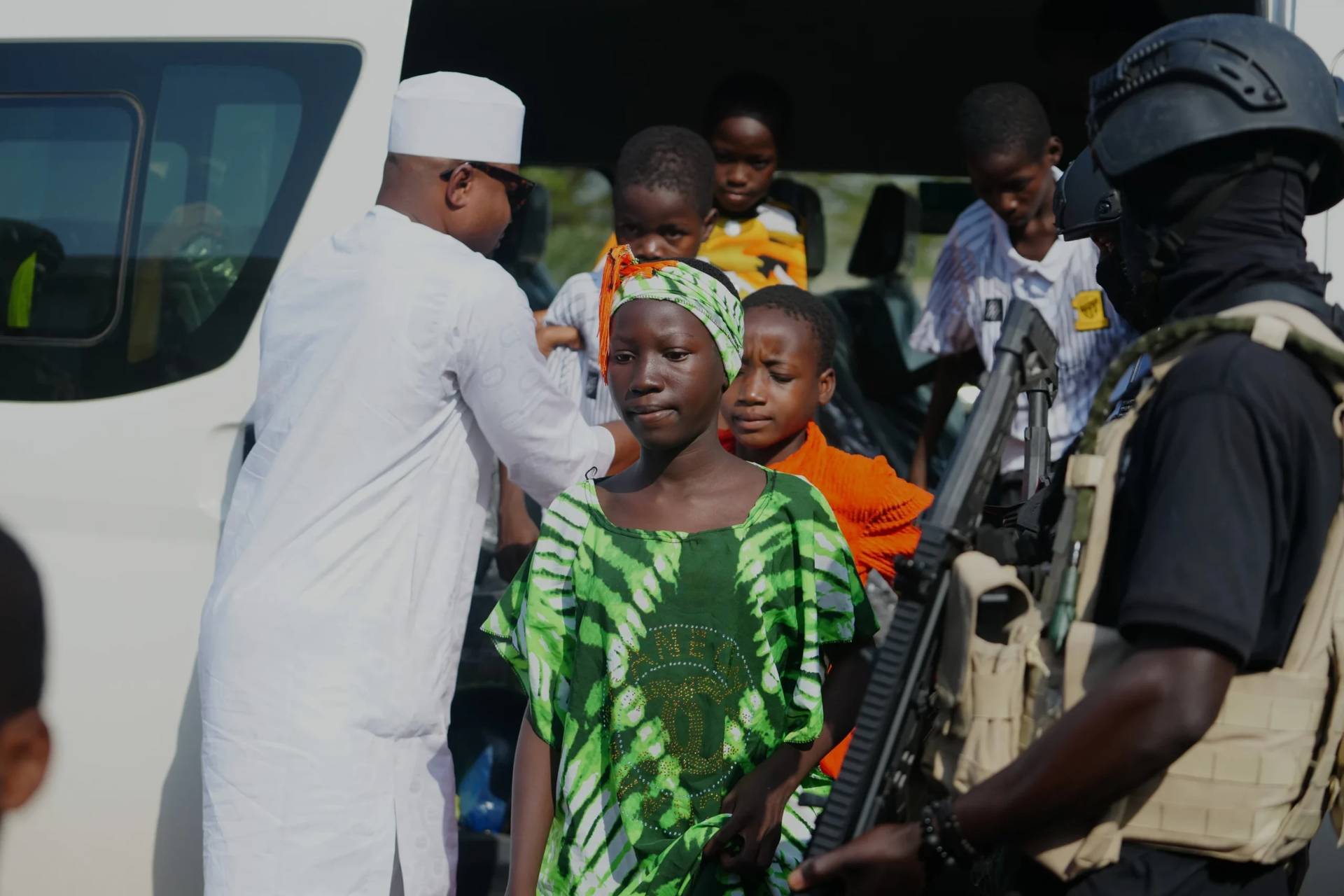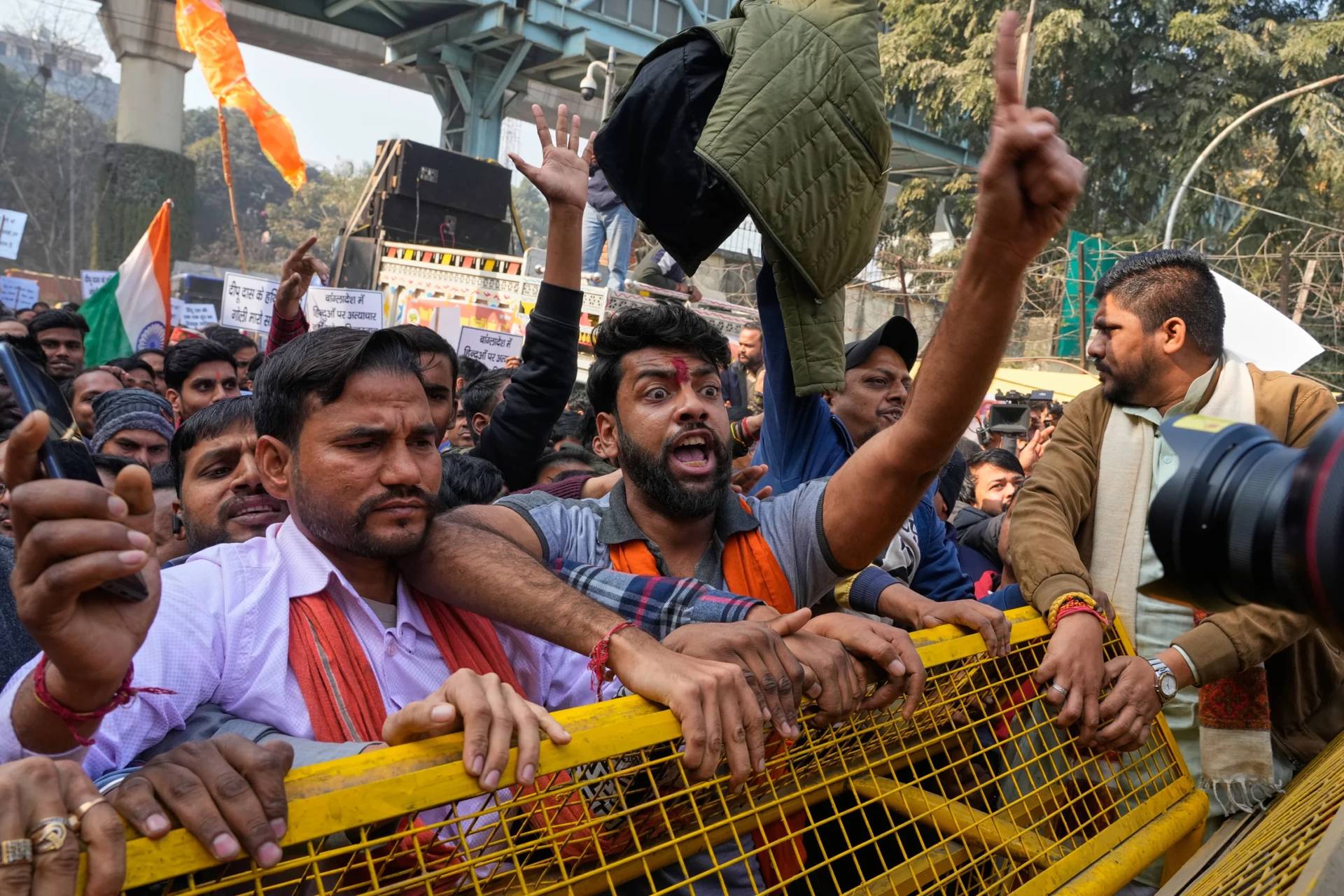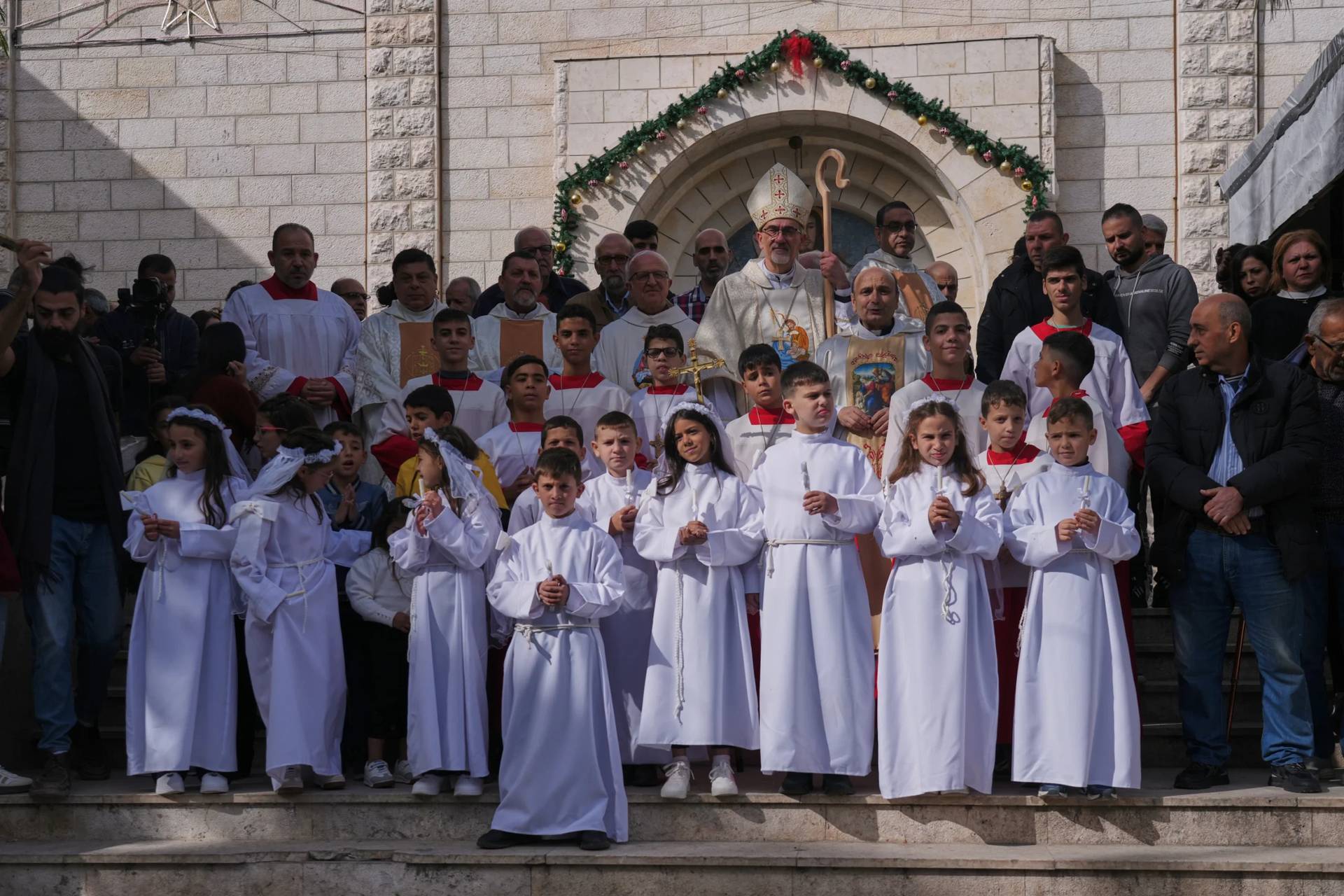YAOUNDÉ, Cameroon – Cardinal Pietro Parolin told the children of Cameroon’s “Household of Hope” to “grow in love of one another and in the love of God.”
The cardinal visited the center in Yaoundé on Friday, after meeting with Cameroon’s president and prime minister.
The center was founded 40 years ago by Jesuit Father Yves Lescanne to provide assistance to street children and youths in the prison system.
During Parolin’s visit, scores of children rescued from the streets sang and danced for him. After the children sang “Kumbaya” for him, the cardinal requested an encore.
“There is one word that speaks to what this place represents. Do you know the word?” Parolin asked the children.
As hands shot up to respond, the cardinal smiled as he asked the children to answer.
“It’s love,” said one child. “It’s fraternity,” said another. Parolin, obviously satisfied with the two responses, summed them up in one phrase: “It is fraternity that comes from love.”
RELATED: Top Vatican diplomat visits Cameroon in search of ‘reconciliation and peace’
“So, dear children, I ask you to continue to grow in love of one another and in the love of God,” he said.
“I sincerely thank your benefactors and all those who train you and give you hope, who give you an opportunity to realize a beautiful future,” the cardinal continued.

“I will transmit your greetings and wishes to the Holy Father who will be very happy that I was here with you and that I shared these beautiful moments of fraternity and love with you,” he assured the children.
Parolin also had the chance to see what many of the children served by the “Household of Hope” overcame in their lives.
Jeremy Ngwengan, 23, is now studying for his university degree at the Catholic University of Central Africa in Yaoundé, but he fled his home at the age of eight to live in the streets.
He wouldn’t tell Crux the reason he ran away, but in 2010 he was rescued from the streets by Father Alfonso Ruiz, the administrator of the “Household of Hope.”
“Since coming to this center, I have been taught the value of love and how to live in society,” said.
“It’s helping us to reunite with our families,” he added.
“The center has given me a future – a future I’d lost while living in the streets. That I am now studying at university level is simply a miracle. It’s the center that pays my fee, and feeds me. I can’t thank my benefactor enough,” Ngwengan told Crux.
“The visit of the Vatican’s Secretary of State proves that there are still people in the world who think about us. It’s a sign of love and I really feel good about it,” the student said.
Ruiz said he was concerned about the way street children are treated in Cameroon.
“The world of street children is a sad one,” the priest told Crux. “The way society sees street children is bad, even criminal.”
Archbishop Jean Mbarga of Yaoundé said there were at least 3000 street children in the capital alone.
“Honestly, I think this is a conservative estimate. It’s a grave situation, it’s an emergency, a human catastrophe,” he told Crux.

“Street children do everything on the streets. They’ve got no social security coverage, it’s an aimless adventure,” the archbishop added.
Mbarga said that although the situation of street children in Cameroon was disturbing, he was heartened by the work of the Household of Hope, saying that it fits into the “prophetic dimension of the Church.”
“There are so many children without any family, any parents, any solidarity and I think that the Church, by taking care of these children, is giving testimony of solidarity to the children,” he told Crux.
The archbishop also said the rising problem of street children was a function of the breakdown in family ties.
“The crisis of the family is terrible. We hope that we will now succeed in creating a new vision of the family, not only the natural family, but also the social and the ecclesial family. Our aim is to get people to accept to take care of these kinds of children,” he said, adding that he hoped Parolin’s visit to the center could help foster that message.
“The visit of the cardinal motivates me to continue to invest in this pastoral domain, which is completely humanitarian in nature.”
Ruiz said the street children are “our children who have been abandoned to themselves.”
“We need to do more to help them, and that is what we at the center have been trying to do. We offer them a home and we educate them,” he continued.
“Most often, they flee family problems from home, and we offer them a place of calm and quiet, and we also try to impart certain values onto them – Christian values,” the priest added.
















